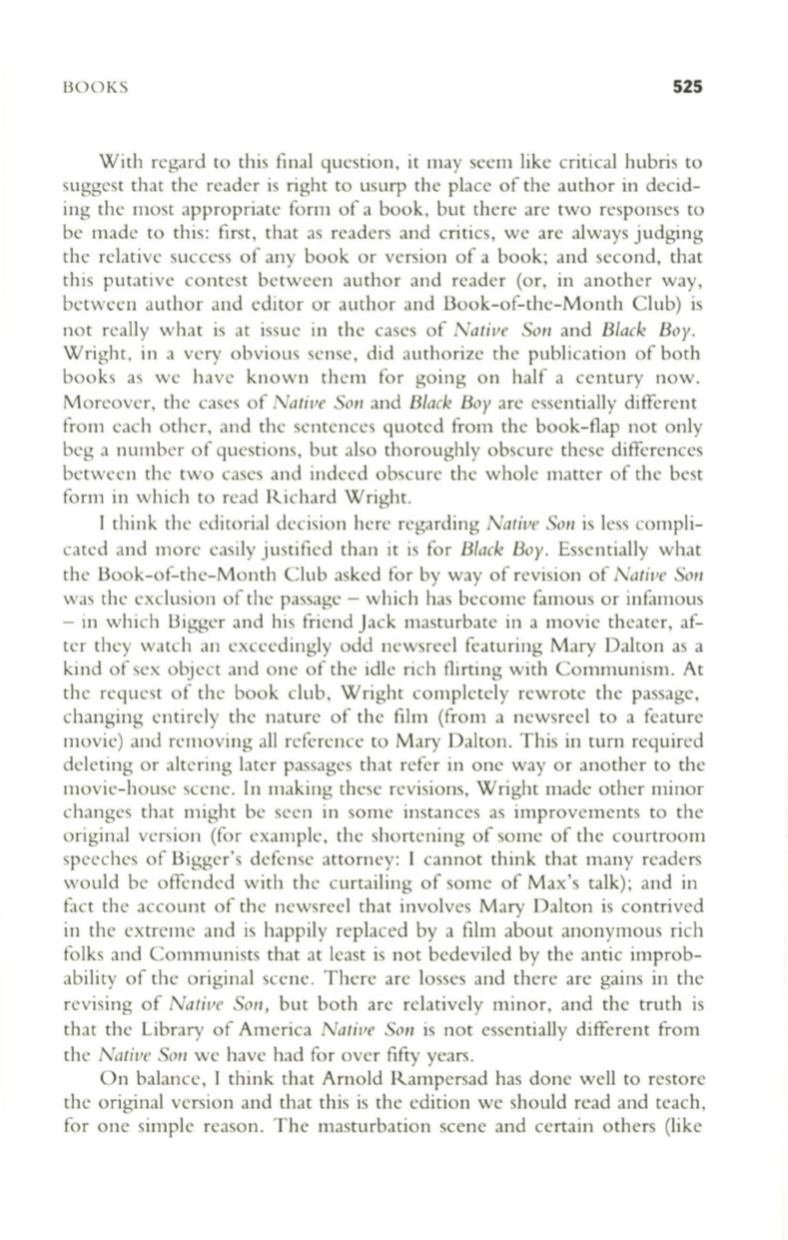
BOOKS
525
With regard to this final question, it may seem like critical hubris to
suggest that the reader is right to usurp the place of the author in decid–
ing the most appropriate form of a book, but there are two responses to
be made to this: first, that as readers and critics, we are always judging
the relative success of any book or version of a book; and second, that
this putative contest between author and reader (or, in another way,
between author and editor or author and Book-of-the-Month Club) is
not really what is at issue in the cases of
Native Son
and
Black Boy.
Wright, in a very obvious sense, did authorize the publication of both
books as we have known them for going on half a century now.
Moreover, the cases of
Native Son
and
Black Boy
are essentially different
from each other, and the sentences quoted from the book-flap not only
beg a number of questions, but also thoroughly obscure these differences
between the two cases and indeed obscure the whole matter of the best
form in which to read R.ichard Wright.
I think the editorial decision here regarding
Native Son
is less compli–
cated and more easily justified than it is for
Black Boy .
Essentially what
the Book-of-the-Month Club asked for by way of revision of
Native Son
was the exclusion of the passage - which has become famous or infamous
- in which Bigger and his friend Jack masturbate in a movie theater, af–
ter they watch an exceedingly odd newsreel featuring Mary Dalton as a
kind of sex object and one of the idle rich flirting with Communism. At
the request of the book club, Wright completely rewrote the passage,
changing entirely the nature of the film (from a newsreel to a feature
movie) and removing all reference to Mary Dalton. This in turn required
deleting or altering later passages that refer in one way or another to the
movie-house scene.
In
making these revisions, Wright made other minor
changes that might be seen in some instances as improvements to the
original version (for example, the shortening of some of the courtroom
speeches of Bigger's defense attorney: I cannot think that many readers
would be offended with the curtailing of some of Max's talk); and in
fact the account of the newsreel that involves Mary Dalton is contrived
in the extreme and is happily replaced by a film about anonymous rich
folks and Communists that at least is not bedeviled by the antic improb–
ability of the original scene. There are losses and there are gains in the
revising of
Native So
11 ,
but both are relatively minor, and the truth is
that the Library of America
Native Son
is not essentially different from
the
Native SOI1
we have had for over fifty years.
On balance, I think that Arnold R.ampersad has done well to restore
the original version and that this is the edition we should read and teach,
for one simple reason. The masturbation scene and certain others (like


